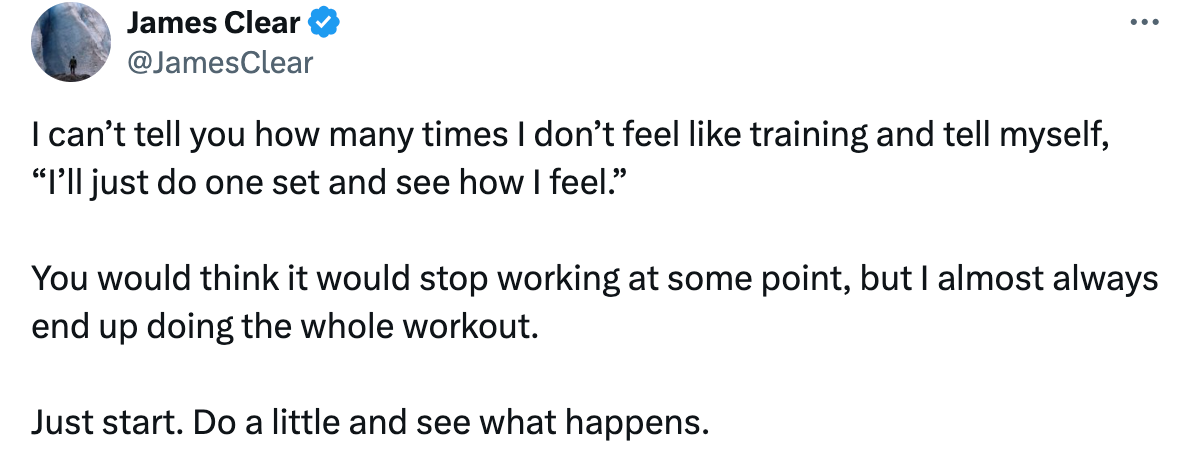Founder Fridays No. 115
Simple Beats Clever -- Innovation By Subtraction -- On Being Directionally Correct
Happy Friday.
Simple Beats Clever
You may be too clever for your own good - sometimes the smartest founders build the hardest products to understand. While founders obsess over differentiation and technical wizardry, the most successful products can often be described in just two words using the simple formula of [adjective] + [noun], like "electric car" or "smart phone." Moving up the complexity scale from "OK got it" to "WTF," products become increasingly difficult for customers to grasp, especially when founders lead with technical details, MBA frameworks, or convoluted product strategies. The solution is surprisingly straightforward but often painful for founders: show your product to target customers, ask them to describe it to others, and embrace their simpler, unvarnished truth - even if it means stripping away your clever strategic positioning. Andrew Chen (5 minutes)
Innovation By Subtraction
Counterintuitively, the path to breakthrough innovation isn't adding more - it's ruthlessly taking things away. Former Tesla President Jon McNeill's "innovation by subtraction" framework challenges founders to eliminate everything but legal and physical requirements, track every process in a spreadsheet, and keep cutting until they're forced to add 10% back in. The key insight is that automation should come dead last - only after you've simplified processes to their bare essence and truly understand the customer journey, as Tesla demonstrated when they literally built Model 3s by hand in a tent to optimize production. To execute this effectively, leaders must spend 20% of their time on the front lines and focus obsessively on the two or three things that truly matter, while experiencing their product exactly as customers do. TechCrunch (7 minutes)
On Being Directionally Correct
Your obsession with doing things "the right way" might be the very thing that kills your startup. Forget about endless customer interviews, complex prioritization matrices, and obsessing over every bug - instead, focus your entire team on one clear goal and swing for the fences with ambitious bets that could 10x your business. The key to startup prioritization is embracing imperfection by keeping only 10-30% of resources for technical debt, adopting a "just in time" mindset instead of building for hypothetical future needs, and ruthlessly shortening planning cycles from quarterly to bi-weekly or even weekly sprints to maintain momentum. Success comes from rapid execution of big bets, not from perfectly implemented small ones. June (8 minutes)
Founder FAQ: What’s the Deal With Unvested Shares
Everything you think you know about startup equity vesting is probably wrong. Contrary to popular belief, when you receive a stock grant, you actually own all your shares from day one - the company just maintains a diminishing right to buy them back if you leave. This is fundamentally different from "earning" shares over time, and it comes with an unexpected twist: even your unvested shares typically have full voting rights (though this doesn't apply to options). While the company's repurchase right shrinks monthly, your ownership and shareholder privileges begin immediately, making equity far more valuable than most employees realize. Westaway (5 minutes)
Startup Funding Guides
I’ve put together a series of guides to equip founders to excel at fundraising. These guides break down the deal term by term and give you negotiation tips so that you can speak to investors with confidence.
Convertible Note: Guide / Video
Extending Your Runway with General Counsel
In this economy, every startup is looking to lower burn rate and extend runway. We helped a Series A generative AI drastically reduce their legal spend by switching to our General Counsel service. When we first met the owners, they were working with a big law firm and felt they were overpaying for basic legal work. Nearly every month, they got a hefty bill just to cover equity grants, contract reviews and lawyer calls/emails. When they switched to General Counsel at Westaway, they: 1) Got more personal service and quicker response times. 2) Significantly reduced their legal spend. With faster deal execution and lower spend, they extended runway and improved cash flow. If you're looking to optimize legal costs and extend runway, click here to schedule a call. Let's discuss whether on-demand General Counsel is right for your startup.



